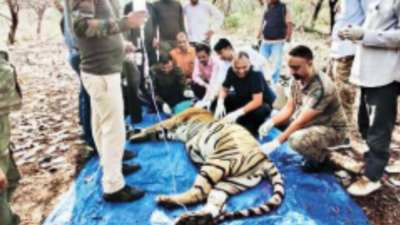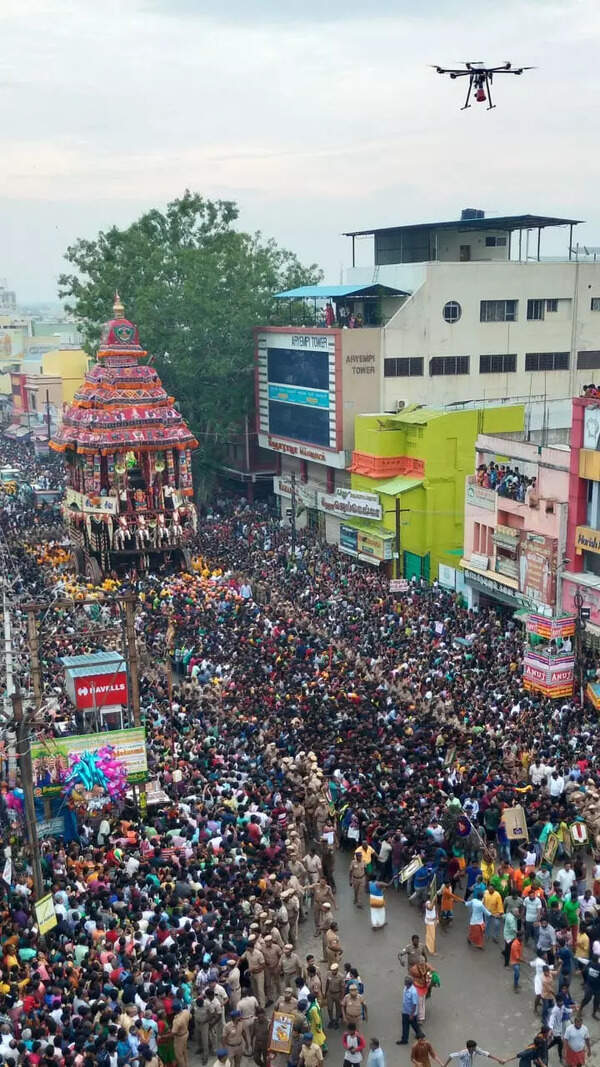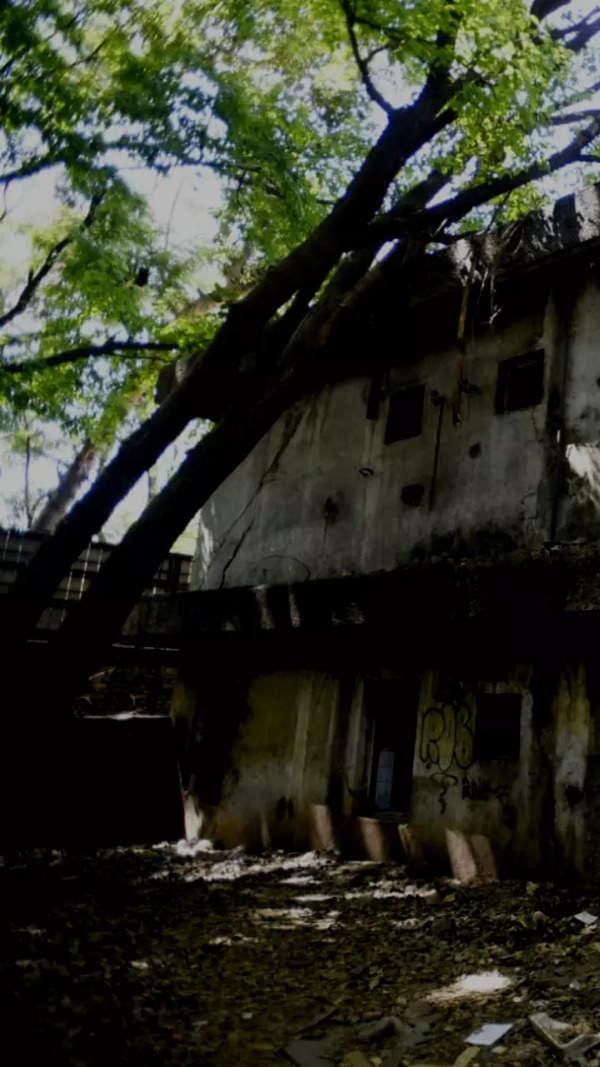- News
- City News
- jaipur News
- Rajasthan: Mukundra Tiger Reserve's only tigress MT-4 dies, was pregnant with 3 cubs
Trending Topics
Rajasthan: Mukundra Tiger Reserve's only tigress MT-4 dies, was pregnant with 3 cubs

Doctors and forest staff attempts to revive the tigress on Thursday
KOTA: MT-4, the only tigress in Mukundra Hills Tiger Reserve (MHTR), died during treatment on Thursday noon with three fully formed cubs still unborn in her womb.
Forest officers were claiming that the 9-year-old tigress was hale and hearty, recently seen chasing a herd of deer on April 27 in the reserve. Two days later, on April 29, she was spotted as being dull in movement, with possible colic pain. A team of doctors from Ranthambore and Kota carried out round-the-clock monitoring and the next day found the tigress with severe constipation, unable to release stool.
The tigress was tranquilised on May 1 and administered enema. Doctors evacuated two pieces of fecalith (stone-like hard stool). On Thursday, the day she died, they evacuated another 4-5 pieces of fecalith.
The monitoring team on Wednesday at around 12.30pm reported something hanging out of the tigress' anus, which was later through consultation with experts diagnosed as prolapse of rectum, generally found among cattle.
On recommendation of inserting the rectum and anus into its place, a joint consultation was held with experts of National Tiger Conservation Authority (NTCA), Wildlife Institute of India (WII), doctors from Jaipur, Ranthambore and Kota, after which a team of doctors tranquillized the big cat at 8.54am Thursday morning for the treatment, MHTR field director Sharda Pratap Singh told TOI.
Singh said that the big cat revived at 10.38am, but half an hour later the respiration suddenly stopped and instantly it succumbed to death at about 1.15pm. The animal took deep hiccups thrice before the last breath, he mentioned.
A postmortem found that the tigress was full-term pregnant with three cubs in the womb, said Dr Tejendra Riyad, one of the doctors who conducted the postmortem on Thursday evening. The tigress would have delivered the cubs in the next few days, he said, remarking, "It is not the loss of one tigress but of four tigers in the MHTR."
Terming the death of MT-4 as a major setback to MHTR and tourism in Hadouti, wildlife enthusiasts raised concerns of infections from tigers shifted to MHTR from Ranthambore. When tigers in MHTR died of disease in 2020, veterinary doctors pointed to possible genetic infection in tigers in Ranthambore.
Forest and wildlife officers denied the possibility of genetic infection as reason behind the death of MT-4.
The big cat was taken for an X-ray on Wednesday to find out the blockage in intestine. It had to be done in the darkness of the forest with a portable X-ray machine running on a generator and inverter lights, Singh said.
Forest officers were claiming that the 9-year-old tigress was hale and hearty, recently seen chasing a herd of deer on April 27 in the reserve. Two days later, on April 29, she was spotted as being dull in movement, with possible colic pain. A team of doctors from Ranthambore and Kota carried out round-the-clock monitoring and the next day found the tigress with severe constipation, unable to release stool.
The tigress was tranquilised on May 1 and administered enema. Doctors evacuated two pieces of fecalith (stone-like hard stool). On Thursday, the day she died, they evacuated another 4-5 pieces of fecalith.
The monitoring team on Wednesday at around 12.30pm reported something hanging out of the tigress' anus, which was later through consultation with experts diagnosed as prolapse of rectum, generally found among cattle.
On recommendation of inserting the rectum and anus into its place, a joint consultation was held with experts of National Tiger Conservation Authority (NTCA), Wildlife Institute of India (WII), doctors from Jaipur, Ranthambore and Kota, after which a team of doctors tranquillized the big cat at 8.54am Thursday morning for the treatment, MHTR field director Sharda Pratap Singh told TOI.
Singh said that the big cat revived at 10.38am, but half an hour later the respiration suddenly stopped and instantly it succumbed to death at about 1.15pm. The animal took deep hiccups thrice before the last breath, he mentioned.
A postmortem found that the tigress was full-term pregnant with three cubs in the womb, said Dr Tejendra Riyad, one of the doctors who conducted the postmortem on Thursday evening. The tigress would have delivered the cubs in the next few days, he said, remarking, "It is not the loss of one tigress but of four tigers in the MHTR."
Terming the death of MT-4 as a major setback to MHTR and tourism in Hadouti, wildlife enthusiasts raised concerns of infections from tigers shifted to MHTR from Ranthambore. When tigers in MHTR died of disease in 2020, veterinary doctors pointed to possible genetic infection in tigers in Ranthambore.
Forest and wildlife officers denied the possibility of genetic infection as reason behind the death of MT-4.
The big cat was taken for an X-ray on Wednesday to find out the blockage in intestine. It had to be done in the darkness of the forest with a portable X-ray machine running on a generator and inverter lights, Singh said.
Start a Conversation
FOLLOW US ON SOCIAL MEDIA
FacebookTwitterInstagramKOO APPYOUTUBE










